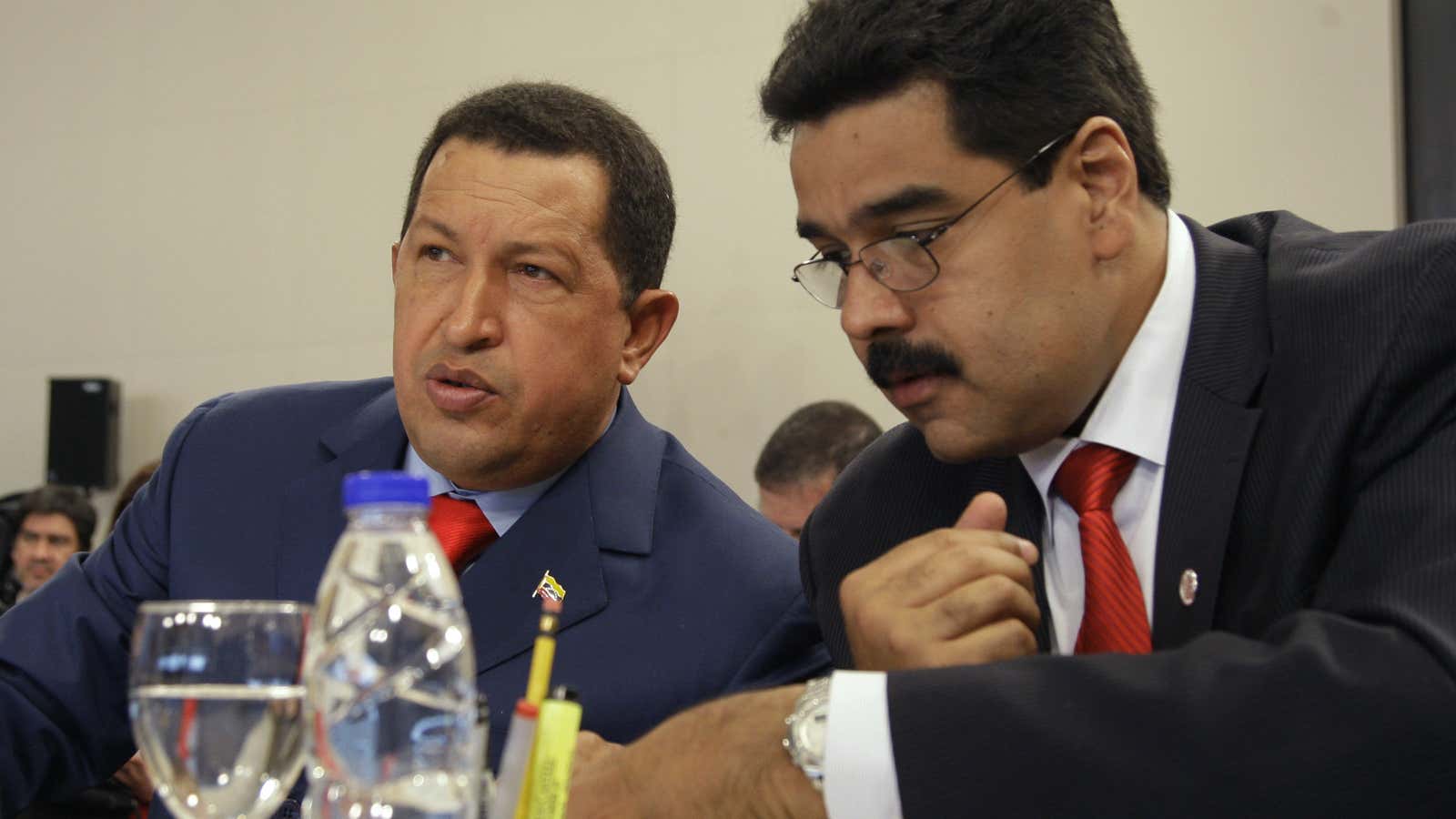The death of Hugo Chávez signals the end of an era in Latin America, which could mean difficulty for some regional allies yet mark a period of improved relations with the US. The populist, leftist and charismatic leader spearheaded a regional effort that pitted entrenched elites and multinational corporations against burgeoning social movements promising to help the poor and socially excluded. Chávez’s attractiveness was based in large part on his ability and willingness to channel large oil revenues into social services within Venezuela. He also gained friends by offering an attractive and concessionary oil-financing scheme (known as Petrocaribe) to smaller countries in Latin America and the Caribbean.
While Venezuelan Vice President Nicolas Maduro is expected to win pending elections, he will struggle to fill Chávez’s shoes. The relatively less dynamic Maduro may try to advance Chávez’s causes, but he will face growing domestic imbalances, an electorate increasingly unhappy with food shortages and power blackouts, and fractures within the chavista movement. The new leader probably won’t have the time or resources to lavish on other friendly countries. Leaders such as Rafael Correa of Ecuador or Daniel Ortega of Nicaragua, may want to take up leadership of Latin America’s left, but they simply don’t have the funds needed to get much traction at the international level. And the aging Castro brothers have already signaled that they may be nearing retirement, which means that two of the region’s most influential leftist leaders are more inclined to step down rather than buttress a flagging movement.
The departure of Chávez from the Latin American political scene could also usher in a new period of enhanced diplomacy and improved relations with the US. Countries like Nicaragua and Ecuador that had firmly planted their alliances with Chávez will now need more funding from the multilateral institutions such as the IMF and World Bank as well as bilateral support from the US and EU. This means they will be more vulnerable to pressures forcing them to improve their shabby governance, such as Correa’s threats to the local media and Ortega’s blatant maneuvers aimed at solidifying his own power. Indeed, as Chávez’s fiery rhetoric fades from memory, this could also embolden leaders such as Mexico’s Enrique Pena Nieto and Brazil’s Dilma Rousseff to take a stronger and more vocal stance in regional issues. The success of moderate, pragmatic and investor-friendly governments that are flush with investment and cash could begin to take a more active role in supporting and guiding their regional counterparts.
Such support may soon be needed. The imminent economic consequences of Chávez’s death are clearly reverberating throughout the region as well, particularly with the looming threat that Petrocaribe funding could eventually be phased out. Maduro has promised to maintain funding to important allies like Cuba, but if the new president faces growing threats at home, he may be forced to wind down economic commitments to the Dominican Republic, Nicaragua, Honduras, and Jamaica. This is bad news for smaller Caribbean and Central American countries that have struggled to cover volatile prices of imported oil, and have been able to use the funding to finance the construction of oil refineries or even to just keep the power sector afloat. Reduced support from Venezeula will hurt some countries in the short term. But the opportunity for new leadership and support from more moderate regional leaders, as well as renewed efforts from the US, could boost growth and strengthen democracy in the region in the long term.
